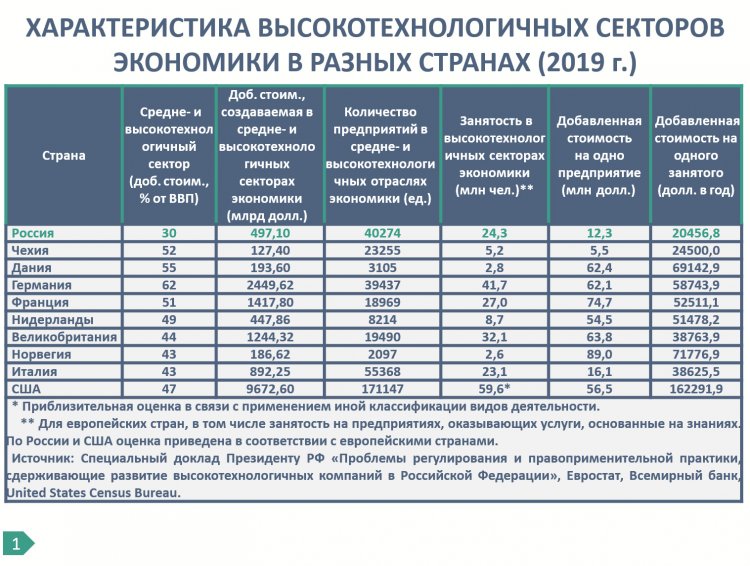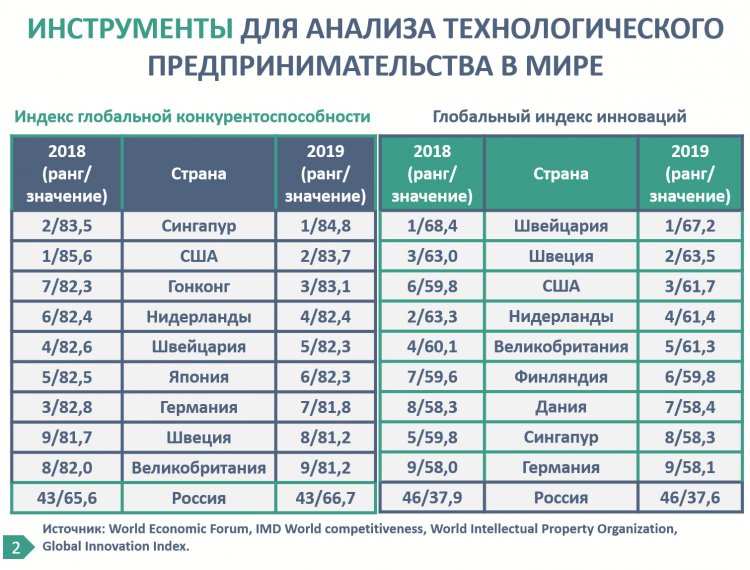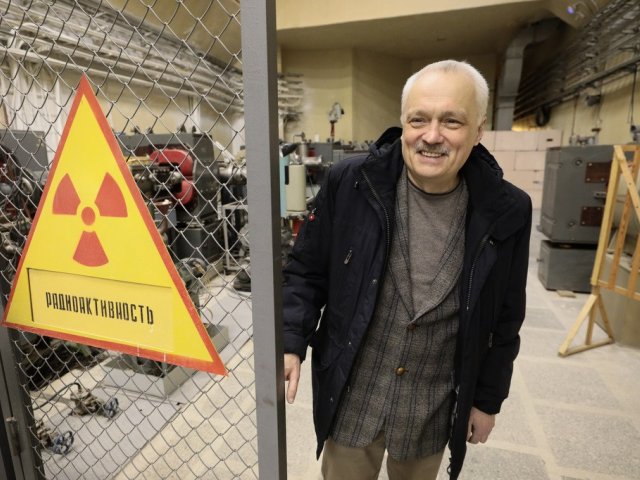Scientists at Vologda Research Center of the Russian Academy of Sciences (VolRC RAS), Vologda, are looking for approaches that would enable objective assessment of technological entrepreneurship in Russia, in order to develop effective measures to support it on the labor market and to set priorities based on activity types specific to regions of Russia. There is still a problem promoting innovative activities of regions; therefore, the determinant should be the influence of the education factor on the dynamics of entrepreneurial initiatives.
Technological entrepreneurship based on introduction of innovative products would provide the basis for the new development strategy for the national economy and production sector. However, lack of adequate financial support to market science and knowledge, lack of skills to promote products, mutual mistrust among commercial investors, scientists and product developers are slowing down the development of promising high-tech startups in this country.
The Vologda scientists are working on a research project on development management of technological entrepreneurship in the region's economy, which covers the TE assessment issue amongst other things. As part of government assignment No. 0168-2019-0006 “Management of processes of structural transformation of regional economies, based on development of small and medium-sized businesses”, headed by Yevgeny Aleksandrovich Mazilov, Candidate of Economic Sciences, leading research officer, Deputy Director for Scientific Work, Deputy Head of the Department for Science and Technology Development and Economy of Knowledge at VolRC RAS, specialists are developing and presenting proprietary solutions to this issue, and suggesting potential areas for technological entrepreneurship on the regional level, with the education factor taken into account.
Nikolai Olegovich Yakushev – a study participant, research officer at the Federal State Budgetary Science Institution “Vologda Research Center of the Russian Academy of Sciences (VolRC RAS), Vologda – told us of the specifics of technological entrepreneurship in Russia and of the TE assessment proposed by the project development team, and detailed how promotion of such activities and education programs would support implementation of potentially successful ideas.
“Entrepreneurship at the socio-economic angle is the basis for development of national economies, involving more investment in skills, innovations and technologies than the state can accumulate. However, the conventional understanding of entrepreneurship is not enough to describe it and make an assessment of technological entrepreneurship in particular. Russia has some infrastructure for development of entrepreneurship as such and technological entrepreneurship in particular. This infrastructure includes naukograds (science towns), special economic zones, major technology parks, technological platforms, and innovative territorial clusters. However, the practical implementation of assessment of the state of technological entrepreneurship and of its contribution to the Russian economy, remains insufficient. It should be about transforming the entire lifestyle of society, down to the actual values of the people. This means that we need to look for options for technological entrepreneurship assessment, which in the end reflects the scientific significance of the study and its relevance.” Thus, Nikolai Yakushev explained the need for scientific research on assessment of the level and state of Russian technological entrepreneurship.
What does the term "technological entrepreneurship" stand for and what are the main signs/specific features of entrepreneurship in Russia?
“The main sign of technological entrepreneurship in Russia should be an increased level of technological complexity of the economy resulting from the use of synergy effect from interaction of economic entities as their capacities are utilized.
In this sense, the characteristic of Russian technological entrepreneurship is in: the definition of its attribute and consists in the link between progress in science and technology and the choice and development of new products and assets; the focus on finding new opportunities and unique specialist entrepreneurs in various fields of professional activities, who could use the opportunities successfully; and orientation at project activities and investment in startups.
The specifics of technological entrepreneurship could be viewed as systematic entrepreneurial activities based on transformation of fundamental knowledge of science into technologies that would be industrially applicable, economically justified, and in demand on the market.
Given the attributes and characteristics identified, for the purposes of our study, technological entrepreneurship is understood as a specific activity aimed to create a complete chain from the idea (research project) to the sale of a sophisticated product on the market, with the product having intellectual value whose attribute is an increase in the level of technological complexity of the economy resulting from the use of the synergy effect of co-organization of different factors of production and other market players,” said the young scientist, describing the concept.
What promising startups are there in the Russian technology sector?
“In general, the term startup describes any company at the initial stage of its business.
It has to be understood that an ambition regarding a technology startup and a concrete idea or plan for it are two entirely different things. Promising technology startups are normally based on breakthrough ideas involving advanced technology. Startups make products or provide services, for which there is a market and which are going to be in demand. Thus, small details aside, the analysis of startups in the Russian technology sector has led to the following conclusions:
1) The development of promising startups was in part caused by the recent achievements in artificial intelligence (according to Statista, the financing of artificial intelligence (AI) startups in 2019 across the world amounted to US $24 billion – ten times the level of 2013). AI technology startups succeed as do companies that bring AI research to new levels.
2) Technological entrepreneurs are implementing projects in various sectors, including: biotechnology; development of digital services (web-platforms) that are used in professional activities and provide educational and consulting services to the public.
3) One of the most popular lines of business among the recently established tech companies is provision of additional knowledge, and collection of information for specialists and entrepreneurs,” the Vologda researcher pointed out.
How is technological entrepreneurship measured in our country?
“In Russia, there is still the issue of the adequacy of the government statistics system to the goals of the development management of technological entrepreneurship. At present, statistics, which only reflect the key parameters of innovative development of organizations (specific weight of organizations implementing technological innovations in the total number of organizations included in the study; innovative activities of an organization; technological innovations of small businesses), also become available with a significant delay. The structure of the statistical evaluation indicators does not quite fit the task of today, i.e., a complete assessment of the contribution and development of technological entrepreneurship in Russia. At present, technological entrepreneurship in Russia could only be assessed indirectly – through analysis of the dynamics of high-tech businesses,” Nikolai Yakushev revealed.
During the course of the research, the Vologda scientists reached the conclusion that the economic science sector in Russia lacks an approach to comprehensive assessment of technological entrepreneurship that would take into account both the contribution and the development level.
As Nikolai Yakushev remarked, “on the whole, assessment of technological entrepreneurship is a top priority. However, there should be an understanding that technological entrepreneurship cannot be measured within a conventional approach (e.g., one applied in project documents) by matching costs against benefits. Such one-sided approach to performance assessment would sideline the issue of the degree to which the results match the original goals, and thus the measuring of the contribution of technological entrepreneurship to the Russian economy. A highly important thing today is to look at technological entrepreneurship not just in monetary terms, but with indication of particular specialization and specification in the region as per the Russian Classification of Economic Activities (OKVED).”
VolRC RAS specialists are proposing their own approach to assessing the state of technological entrepreneurship in Russia, which is based on both Russian and international experiences. According to Nikolai Yakushev, the proposed approach “involves changes to existing laws and regulations with a phased mechanism for the process, and preparation of a list of indicators for assessment of technological entrepreneurship in Russia. For example, we believe that p. 6 of the rules of statistical observation of operations of small and medium sized businesses in the Resolution of the Government of the Russian Federation dated 16.02.2008 No.79 “On procedure for selective statistical observation of operations of small and medium-sized businesses,” should be changed.”
As the scientist emphasized, “in addition, in our view, the approach to assessment of technological entrepreneurship in Russia should be comprehensive, and take into account the following indicators for statistics collection:
- the quantity of goods produced by the company and works and services performed using the company’s own resources, by technological intensity (low, medium, high, always with explanation of the terms);
- the quantity of goods produced by the company and works and services performed using the company’s own resources, which were newly introduced or underwent significant technological modifications (different from the previous products of the company), by sale market, with separate numbers for the domestic or world market;
- the quantity of goods produced by the company and works and services performed using the company’s own resources, which were improved (the same products manufactured using new or improved production methods), by sale market, with separate numbers for the domestic and world markets;
- costs involved in the introduction of new or improved products or services, new or improved processes or techniques for production (delivery) of services;
- costs of introduction of technological solutions, by sources of financing (company's own funds; federal, regional, local budget; support funds; foreign investment; etc.);
- costs of developing technological solutions, by sources of financing (company's own funds; federal, regional, local budget; support funds; foreign investment; etc.).”
Training programs could help developing entrepreneurial abilities in the high-tech sector.
“The education factor in technological entrepreneurship is characterized based on the education provided by higher education institutions and other educational organizations, and on promotion of entrepreneurship among the public through education, when background conditions are created for increasing involvement of the population in entrepreneurship. In both cases, the education factor facilitates accumulation of new knowledge, building and development of new skills, improvement of professional and innovative abilities for implementation of promising ideas. Moreover, professional businessmen in the technology sector normally need not one but several competences: as a scientist, as an engineer, and as a manager,” Nikolai Yakushev believes.
Promotion of entrepreneurship in the technology sector should help build potential and initiative, and share experience with new entrepreneurs.
How should entrepreneurial culture be built for successful development of technological entrepreneurship in Russia?
“Development of entrepreneurship is of strategic significance for Russia in general. In 2018, the national project “Small and medium-size businesses and supporting private entrepreneurial initiative” was adopted for implementation. The project consists of five federal projects including “Promotion of entrepreneurship”. Among the activities envisaged in the latter are detecting entrepreneurial abilities and engaging persons with entrepreneurial potential and motivation for creating their own business in entrepreneurship. Such activities play a special role in creating technological entrepreneurship, since technological entrepreneurs bear responsibility for innovative initiatives and creation of a new business based on scientific research and development products.
Our position is that taking action in several areas could boost the dynamics of entrepreneurial initiatives.
Firstly, the state needs to improve laws and regulations that enable education initiatives for the benefit of entrepreneurs in the technology sector and those directly involved in startups.
Secondly, a robust promotion strategy (including training activities) for regions aimed to develop entrepreneurship in the technology sector would become a factor in the development of small and medium-sized businesses and create opportunities for involvement in the entrepreneurship sector for various population groups.
Thirdly, the priority activity areas for development of technological entrepreneurship in Russian regions should include increasing the number of startups including projects by students and university graduates who received support (including higher education institutions, business schools, business support centers) thanks to pro-active promotion of programs and grants designed to support the creation of new small businesses in the technology and innovations sectors. This may have a positive effect on entrepreneurial potential in the technology sector and, in the future, on the development of new sectors of the region’s economy.
The activity areas listed above are in line with our understanding of promotion in the development of technological entrepreneurship. The first activity area is to create an environment for entrepreneurs to accumulate educational potential, while the second and the third areas are to do with promotion of entrepreneurship through education initiatives,” Nikolai Yakushev opined.
What is your estimation of the level of technological entrepreneurship in Russia at this stage of the study?
“It’s rather hard to measure the level of technological entrepreneurship in Russia, when there is not enough information. The purpose of technological entrepreneurship is to create a complete chain from the idea (research project) to the sale of a sophisticated product on the market, with the product having intellectual value. There is the National Technological Initiative (NTI) in Russia, which is an action program to build new markets and an environment for global technological leadership by 2035. It allows taking into account the accumulated scientific and innovative potential and the outlook for commercialization of Russian research and development products in the following sectors: robotics, new production technologies, smart energy, intelligent transportation systems, bio– and nanotechnologies,” the VolRC RAS research officer commented.
It is obvious that the current situation with Russian technological entrepreneurship has to change through a number of factors (including formalization of the concept as such in law) and, of course, we need action to boost technological startups and promote a culture of entrepreneurship.
Photo preview Siarhei Lenets























